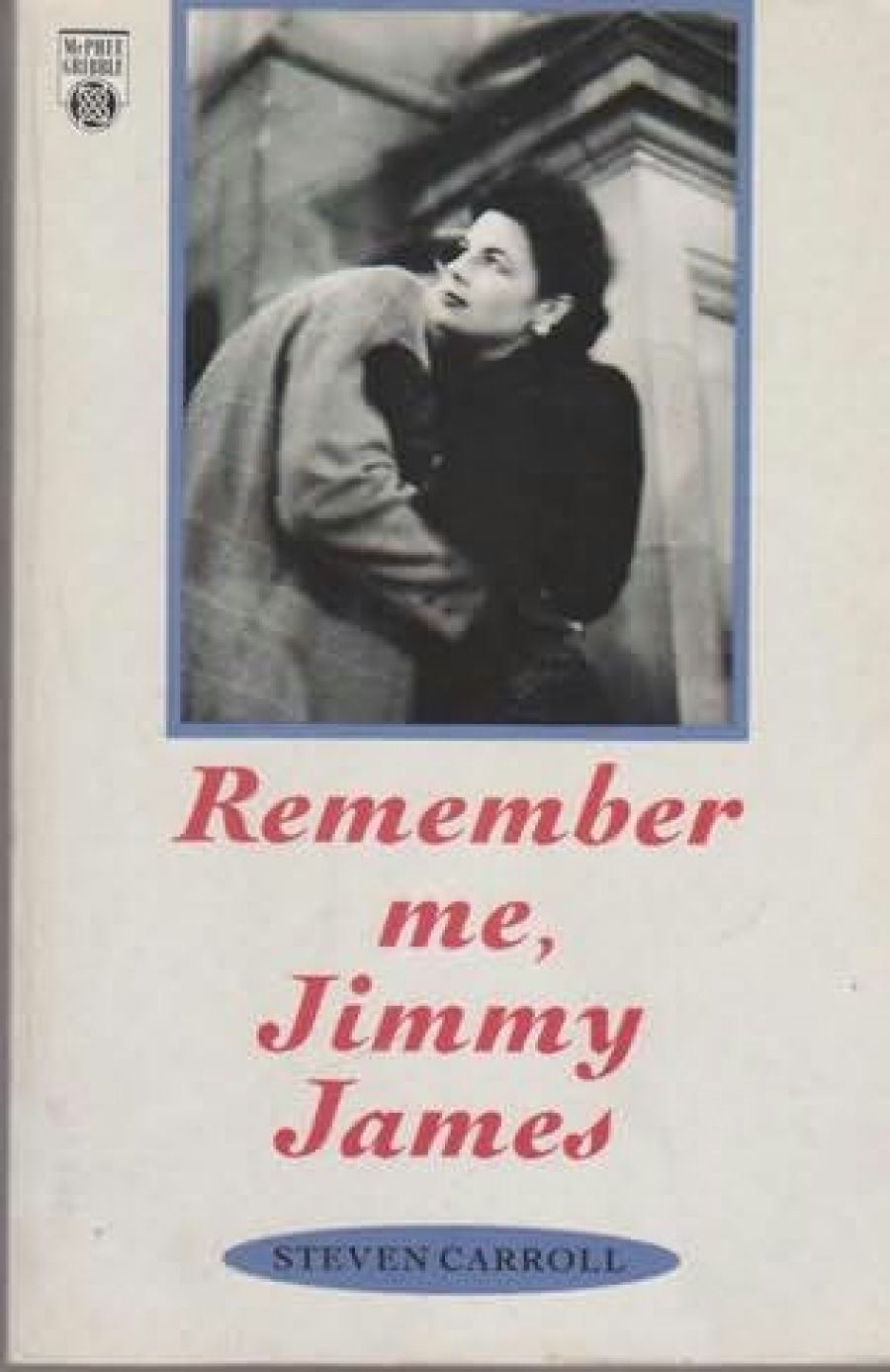
- Free Article: No
- Contents Category: Fiction
- Review Article: Yes
- Online Only: No
- Custom Highlight Text:
A first novel written with fine-honed discretion and linking three generations of very ordinary Australians, this book has a satisfying sense of the continuities and disjunctions within families.
- Book 1 Title: Remember Me, Jimmy James
- Book 1 Biblio: McPhee Gribble, $14.95 pb
The author has worked well to convey Melbourne, especially from the 1920s to the 1960s, and a pervading sense of genteel poverty rattles like a tram in the next street. The men and women in this world, though, are burdened before they start.
At the outset, two sisters share a secret: paternity of the son of one of them, the Jimmy James of the title. Jimmy’s suspicions about his own father begin early but there’s nothing much he can do about it except invent a little ritual exorcism in the school playground, using a family photograph. Jimmy marries and his life is a sort of faded photograph of a life, though there is a son, Tom. By the time Torn exemplifies the newer social mores of the 1960s (he goes to University), their lives, as it were, have moved from being stored in shoe boxes to being enclosed in stiff albums. Tom ends up siring a child himself, but with the wife of his best friend. It is as if it had all been foretold.
What gives Remember Me, Jimmy James its distinction is Steven Carroll’s skill in evoking larger, unspoken feelings within terribly mundane, stilted contexts. His dialogues are spot-on. There is also finesse in selection of detail, often the small moment of idiosyncratic twitch that conveys a whole crisis. Although he writes of lives that are almost unremittingly dull, without any sparkle or energy, he makes you believe they have a sort of inevitability. When Jim and his longsuffering wife, Josie, finally part – he to find a nest at Tweed Heads, she to fall back no doubt with her photographs – their separation at Spencer Street station is laconic and moving.
One feels the author was seeking to capture the nostalgic tug of some old half-remembered song, something that hints at powers beyond the ordinary though in itself entirely ordinary, like the twang of an out-of-tune piano, or some scratchy disc, or faded sepia photographs.


Comments powered by CComment